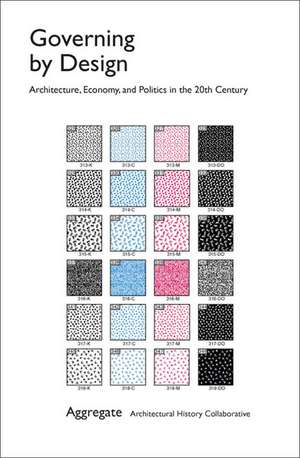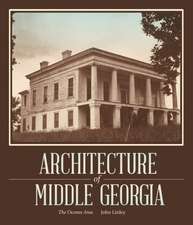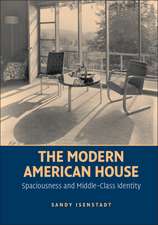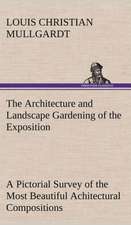Governing by Design: Architecture, Economy, and Politics in the Twentieth Century: Culture Politics & the Built Environment
Autor Aggregateen Limba Engleză Paperback – 15 apr 2012
Governing by Design offers a unique perspective on twentieth-century architectural history. It disputes the primacy placed on individuals in the design and planning process and instead looks to the larger influences of politics, culture, economics, and globalization to uncover the roots of how our built environment evolves.
In these chapters, historians offer their analysis on design as a vehicle for power and as a mediator of social currents. Power is defined through a variety of forms: modernization, obsolescence, technology, capital, ergonomics, biopolitics, and others. The chapters explore the diffusion of power through the establishment of norms and networks that frame human conduct, action, identity, and design. They follow design as it functions through the body, in the home, and at the state and international level.
Overall, Aggregate views the intersection of architecture with the human need for what Foucault termed “governmentality”—societal rules, structures, repetition, and protocols—as a way to provide security and tame risk. Here, the conjunction of power and the power of design reinforces governmentality and infuses a sense of social permanence despite the exceedingly fluid nature of societies and the disintegration of cultural memory in the modern era.
In these chapters, historians offer their analysis on design as a vehicle for power and as a mediator of social currents. Power is defined through a variety of forms: modernization, obsolescence, technology, capital, ergonomics, biopolitics, and others. The chapters explore the diffusion of power through the establishment of norms and networks that frame human conduct, action, identity, and design. They follow design as it functions through the body, in the home, and at the state and international level.
Overall, Aggregate views the intersection of architecture with the human need for what Foucault termed “governmentality”—societal rules, structures, repetition, and protocols—as a way to provide security and tame risk. Here, the conjunction of power and the power of design reinforces governmentality and infuses a sense of social permanence despite the exceedingly fluid nature of societies and the disintegration of cultural memory in the modern era.
Preț: 389.94 lei
Nou
Puncte Express: 585
Preț estimativ în valută:
74.62€ • 78.10$ • 62.10£
74.62€ • 78.10$ • 62.10£
Carte tipărită la comandă
Livrare economică 31 martie-14 aprilie
Preluare comenzi: 021 569.72.76
Specificații
ISBN-13: 9780822961789
ISBN-10: 0822961784
Pagini: 300
Ilustrații: 55
Dimensiuni: 152 x 232 x 20 mm
Greutate: 0.46 kg
Ediția:1
Editura: University of Pittsburgh Press
Colecția University of Pittsburgh Press
Seria Culture Politics & the Built Environment
ISBN-10: 0822961784
Pagini: 300
Ilustrații: 55
Dimensiuni: 152 x 232 x 20 mm
Greutate: 0.46 kg
Ediția:1
Editura: University of Pittsburgh Press
Colecția University of Pittsburgh Press
Seria Culture Politics & the Built Environment
Recenzii
“In a wide-ranging yet coherent exploration of the relationships between design production and political economy, this perpetually engaging edited volume provocatively expands the domains of architectural and urbanist discourse to consider new dimensions of power and contested identities. By elucidating the complex codevelopment of the built environment at all scales and across the globe, Governing by Design prompts us to consider the ways that all architecture is embedded in a managed urbanism of risk. Deploying a commendable form of theorized specificity, the chapters usefully coalesce into the aggregate their authors profess to be.”
—Lawrence J. Vale, Massachusetts Institute of Technology
—Lawrence J. Vale, Massachusetts Institute of Technology
“At last the study of architecture and cities moves beyond the premise that they are merely ‘reflections’ of the broader culture. This edited volume explores architecture as the instrumental medium by which societies actively work to define and realize their expectations, desires, and needs. Just as important, it reveals how critical the role of designers and users is in establishing the means for communities to contest and negotiate their desired ends.”
—John Archer, University of Minnesota
—John Archer, University of Minnesota
“In a series of fascinating essays, ten of the thirteen directors of the Aggregate Architectural History Collaborative pry the lid of a Pandora's box of intractable questions about architecture and building production-and their histories-today. . . This is a wonderful book."
—Journal of the Society of Architectural Historians
—Journal of the Society of Architectural Historians
Notă biografică
Aggregate (Architectural History Collaborative) is a group of ten scholars who five years ago commenced a collaborative discussion on the topics and the methods of architectural history. In workshops and in a formal colloquium, the members of Aggregate presented research and debated their disciplinary aims and concerns. While its membership remains housed within institutions of architecture and art history, the group commitment is to enriching architectural history by engaging with other fields and disciplines.
Descriere
This edited collection offers a unique perspective on twentieth-century architectural history, disputing the primacy placed on individuals in the design and planning process and instead looking to the larger influences of politics, culture, economics, and globalization to uncover the roots of how our built environment evolves.






























